How to Spot a Great Workplace Culture During Your Job Search
When you’re applying for a new role, it’s easy to focus on salary, title, or location. But there’s something equally—if not more—important to consider: workplace culture. A great job on paper can quickly turn sour if the company culture doesn’t support its people. On the flip side, a positive, inclusive, and values-driven culture can make all the difference to your career happiness.
Here’s how to identify signs of a great workplace culture during your job search, so you can find a role that suits not just your skills, but your values and working style too.
Start with the Job Ad
A well-written job spec can offer early clues about culture. Look out for:
- Tone of voice: Is it formal and corporate, or warm and conversational?
- Language: Do they talk about teamwork, flexibility, development, or diversity?
- Benefits listed: Perks like hybrid working, wellness support, or training budgets suggest people-focused values.
The way an organisation presents itself often reflects how it treats its team.
Dig into Their Digital Presence
Before applying, spend some time on the company’s website and social media channels. What kind of content are they sharing? Are employees featured? Do they celebrate achievements, promote volunteering, or support causes? LinkedIn and Instagram are great for spotting real-life glimpses of the workplace.
You can also check employee review sites like Glassdoor—but take these with a pinch of salt. Look for patterns rather than one-off comments.
Pay Attention During the Interview
The interview is your chance to assess the company just as much as they’re assessing you. Ask questions like:
- “How would you describe the team culture here?”
- “What does the business do to support employee wellbeing or professional development?”
- “How do teams typically communicate and collaborate?”
Notice how openly and enthusiastically your interviewers respond. If they struggle to answer or give vague replies, it might raise red flags.
Also take note of the general vibe: Are the interviewers respectful of your time? Do they seem rushed or distracted? Small details can speak volumes about the internal culture.
Ask Yourself: Do Their Values Align with Mine?
Many companies list their values on their website—but do they live them? During your job search, try to get a sense of how the company operates day to day. If they talk about “work-life balance” but expect emails at all hours, that’s a disconnect.
Choose a company whose values reflect what matters most to you—whether that’s collaboration, creativity, social impact, or professional growth.
Final Thoughts
Your next role should support not just your career goals, but your wellbeing and sense of purpose. Taking the time to evaluate workplace culture during your job search can help you avoid mismatches and land somewhere you’ll truly thrive.
Remember, you’re not just looking for a job—you’re looking for the right environment to grow.
Looking for roles in organisations where people and culture come first? Get in touch with our team to explore your options.










